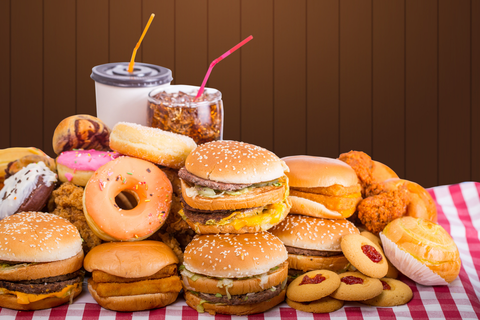Votre panier est vide
Leptin Helps Weight Loss? 6 Things You Need To Know About This Hormone


In 2017 alone, Americans spent $68.2 billion trying to lose weight. In 2018, that expenditure is expected to top $70 billion. Whichever way you look at it, this is a massive figure. Broken down further, it shows that the average person racks up a $155 monthly bill on health and fitness.
This translates into $112,000 over the course of their lifetime. The expenditure covers a wide range of things, from supplements to creams and programs that promise to bringweight down by a number of pounds on a weekly basis. In the human body, the gain or loss of weight is regulated by a hormone called leptin. Leptin helps weight loss and if you don’t know much about it, here is a little rundown.
1.Leptin Has a Source Within the Human Body
Leptin is produced inside your system. In 2008, the Annual Review of Physiology put out an article that stated that leptin comes from fat tissues, known in scientific circles as adipose tissue. All human beings around the world are known to produce leptin by default.
The amount of leptin your body produces depends on how much fat tissue you have inside your body. For example, lean people have less fat, which means that they produce a smaller amount of leptin compared to overweight people. In some obese people, leptin deficiency can be issue if their bodies have trouble producing it.
2. Leptin Is Also Known as the Fullness Hormone

Leptin is tasked with sending some very important messages to your brain. Generally, what it communicates is that you are full and that you might not need to eat any more. This puts it in control of your hunger pangs and appetite swings.
You will need to keep in mind that there is a marked difference between hunger and appetite. The former is a psychological need. When you are hungry, leptin lets your body know that it needs food to put you back on track. You can’t function when hungry. When it comes to appetite, we are looking at an emotional desire. Basically, you can ignore your appetite with zero health risks attached to it.
3. Some Dietary Regimens Bring down Your Leptin Levels
The kinds of foods you choose to eat have a direct correlation with your leptin activity. This mean that people who keep their dietary choices too restricted will reduce the activity of leptin in their bodies.
If you are on a diet that restricts you to extremely low calorie levels, then you are essentially reducing the activity of leptin, and this is not a good idea because it fools you into thinking that you are hungry, so you tend to eat more.
The same thing applies when you consume food high in additives, salt, refined sugar, processed foods and other unhealthy bits like cakes, pastries and chips. When your leptin levels drop, your pace of metabolism grinds to an exhaustive low, which makes you weaker and hungrier.

People who eat healthy naturally don't overeat. Foods that unlock the leptin hormone and make you feel full include high fiber vegetables, high protein food like eggs and legumes, and healthy fat like coconut oil and sunflower seeds. Be sure to plan them in your next meal.
4. It’s Possible to Develop Leptin Resistance & Thus Suffer From Obesity
Leptin abundance and obesity are strange words to use in the same sentence, but the truth is that they happen. Leptin is supposed to warn your body when it’s hungry and when it needs to stop bingeing but at times, this seemingly simple logic does not work. When you have leptin resistance, you have a lot of leptin in your body, but it does not do enough to warn you not to eat more, so you end up eating more fattening food and your body’s energy expenditure keeps going down.
The net result is a bigger weight problem in your hands after some time. Researchers have found thatthe fatter you are, the higher the levels of
leptin in your body. This has led to a school of thought that argues, quite logically,
that leptin resistance is one of the top causes of obesity in humans.
5. Leptin Control Is One of the Better Long-Term Approaches to Weight Loss
Ideally, increasing the efficacy of your leptin is an ideal path to maintaining a hold over your weight. This is because, in sharp contrast to conventional weight loss programs, leptin actually goes into the heart of the causal factors of obesity and does not merely focus on fat loss as a means to an end. If you gain control over your leptin, then you will be able to know when to go out for that pizza or when to give it a break, according to the dictates of your system.

What most people out there don’t know that barring a resistance, leptin works
in perfect sync withthe brain. There is plenty of upside to this. For example, in this scenario, leptin would never encourage your brain to send a signal that you are full when your body needs food to keep the system healthy.
6. Leptin Amplifies Other Hormones in Your Weight Loss Plans
So far, we have taken a look at how leptin directly helps you to lose weight. However, experts out there note that this hormone is highly complex, and that its role is also indirect in many other ways. For example, it works in a complicated process thatlowers the rate of production of a series of hormones ( think ghrelin,dopamine and peptide-based hormones) whose main focus is to send signals that tell the brain that you need more food. In a nutshell, leptin tells your body that it doesn’t need some hormones and peptides, and as a result, the action of these substance is severely limited.
Leptin studies show that the hormone is capable of increasing your metabolic and caloric rates. In a nutshell, this means that it raises the rate at which your food breakdown and processing activities take, and this enables you toeither reduce your weight or lower your fat levels. Whichever way, this can only be good news for everyone out there trying to either lose weight or maintain their weight loss practices.

But Leptin Is Just a Piece of the Weight Loss Puzzle
A whole lot of people out there are constantly trying to look for ways through which they can lose weight. The truth is that weight loss as an industry is a jungle. There is a whole lot of stuff out there that has no business being in the body of a human being. When looking for a weight loss solution, leptin solutions have been known as one of the better long-term approaches.
However, it’s not always about diet; you have to live right and make sure to take the right weight loss approach in the long run. Scientists have dug deep into the root cause of obesity and have been working on a unique formulation that has reduced their patients' BMI and visceral fat.
